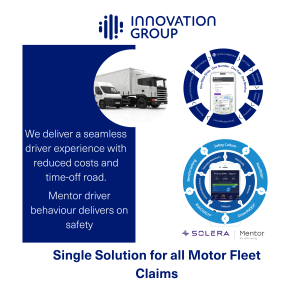Forget the cold winter weather causing havoc and lowering general morale in your workplace, there could be a bigger storm front set to affect the fleet industry in the long term.
Paul Lauria, President of Mercury Associates this week outlined some key areas of the fleet industry that are changing the landscape both at a local and global level.
“One of the things I’ve been really trying to emphathise with our clients and in my public speaking in the last year is the perfect storm that’s bearing down on fleet owners around the world,” he says.
“There are really three elements or storm fronts that we all need to be aware of.”
At their core, Lauria’s recommendations are certainly broader industry problems that will require strategic planning from both the fleet manager and others working within the organisation to solve.
As we head towards the end of the 2017-18 financial year, perhaps now is the perfect time to consider a strategic new action plan to help ensure your fleet continues to run at an optimum level in the future.
1. The advancement of technological systems and overflow of big-data is leaving fleet managers overwhelmed.
“There are a lot of organisations that still struggle to get good information out of their Windows-based work order management systems,” Lauria says.
“When you had a layer on top of that with all of the data that is being generated by telematics solutions, a lot of fleet managers are feeling overwhelmed by the quantities of data.”
Have you considered simplifying your approach to telematics? Is it time your organisation considered changing to a new provider that will allow you easier access to data analysis and reporting?
2. Automotive improvements, in particular, the increase of electric vehicle usage in the last 18 months are making vehicle purchases and day-to-day management harder.
“Fleet professionals are having to make sense of all the different technologies, the cost associated with those, and there are a lot of challenges there,” Lauria says.
“Electrification is clearly front and centre right now in terms of a lot of fleet owners thinking about alternatives to conventional fleet vehicles.”
Are you hedging your bets by having a foot in both the electric/hybrid markets or are you sticking with traditional engines for your future vehicle purchases?
Consider doing further market research and then look to implement a strategy that best fits the needs of your organisation.
3. Baby boomers are retiring or leaving the fleet industry and their experience is not being replaced or passed on.
“Because they have fleet professionals with 20, 30 or 40 years of practical experience…as those individuals retire a lot of their employers have not made any provision for replacing that lost knowledge,” Lauria says.
“You can get by on past practices, when your fleet has been managed by someone who has been doing this for 40 years – but what happens when these individuals retire?”
Do you have transition plans in place for when some of your older or more experienced employees move on to retirement or to other organisations?
For some organisations it might be worth introducing tailored mentorship programs whereby senior employees can share their knowledge and wisdom with the next wave of fleet professionals. Never neglect the need for constant training and refreshing of knowledge within a workplace.











